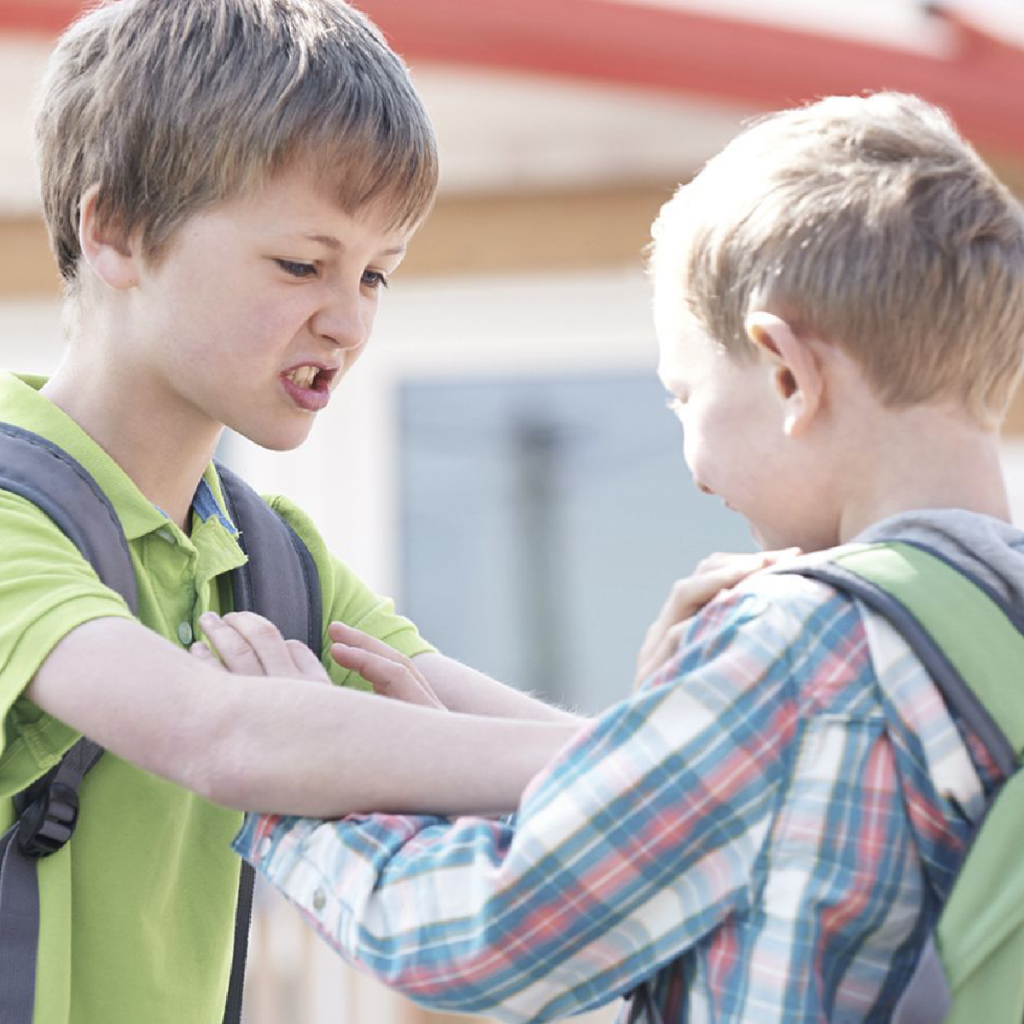Discover effective strategies for parents to handle impulsiveness in the playground.
Handling Impulsiveness in the Playground: Tips for Parents
Welcome to the wild and wacky world of playgrounds! As a parent, you’ve probably witnessed your child’s impulsive behavior firsthand. One moment they’re calmly playing with their friends, and the next, they’re scaling the monkey bars like a mini Spider-Man. It’s as if they have a secret stash of energizer batteries hidden somewhere. But fear not! We’re here to guide you through the chaos and help you navigate the slippery slides of impulsiveness.

Understanding Impulsiveness in Children
Before we dive into the ultimate handbook for parental survival, it’s crucial to understand what impulsiveness really entails. Picture an ice cream truck on a hot summer day – enticing, exciting, and impossible to resist. That’s exactly how impulsivity feels for your little ones. It’s the irresistible urge to act on a whim, without considering the consequences. Think of it as a tiny tornado swirling through their minds, leaving them unable to resist its pull.
But what lies beneath this whirlwind of impulsive behavior? Let’s delve into the psychology behind it and uncover the fascinating reasons behind your child’s impulsive actions.
The Psychology Behind Impulsive Behavior
Impulsiveness is like an undercover superhero power. It often stems from an underdeveloped prefrontal cortex, the part of the brain responsible for decision-making and self-control. When this area is still a work-in-progress, your child’s impulses reign supreme.
However, there’s more to impulsiveness than meets the eye. It can also be a result of deeper emotional needs or a way to fulfill immediate desires. Your child’s impulsive actions may be their way of exploring the world around them, testing boundaries, and seeking instant gratification.
So, our little heroes aren’t intentionally trying to cause mayhem; they’re just figuring out how to navigate the world around them! Understanding the underlying psychology can help you approach their impulsive behavior with empathy and patience.
Identifying Signs of Impulsiveness in Your Child
Recognizing impulsive behavior can be trickier than solving a Rubik’s Cube blindfolded. It can manifest in various ways, such as interrupting conversations, jumping into games without waiting for a turn, or making snap decisions without considering the consequences.
But don’t worry, parental superheroes! With your keen observation skills, you can spot the recurring patterns that indicate impulsive tendencies in your child. Keep your parental radar on high alert, and take note of any impulsive behaviors that you notice.
Remember, understanding your child’s impulsive nature is the first step towards helping them develop self-control and make better decisions. So, gear up and get ready to embark on this exciting journey of understanding and guiding your little ones through the world of impulsiveness!
The Impact of Impulsiveness on Playground Interactions
Now that we’ve uncovered the secrets of the impulsive mind, let’s explore how it affects your child’s playground experience. Impulsiveness can be a double-edged sword, bringing both thrills and spills to social interactions.
Imagine your child at the playground, their eyes sparkling with excitement as they run towards the swings. Their impulsive nature takes over, and they jump onto the swing without waiting for their turn. The other children, who were patiently waiting in line, are taken aback by this sudden burst of energy. Some may feel frustrated, while others may feel left out. This impulsive action has disrupted the delicate balance of playground dynamics, turning what could have been a harmonious playtime into a chaotic adventure where no one knows what comes next.
However, impulsiveness is not all negative. Your child’s spontaneous actions can also bring a sense of joy and excitement to their play buddies. They may come up with creative and unexpected ideas for games, injecting a fresh burst of energy into the playtime. Their impulsive nature can make them the life of the party, attracting other children to join in on the fun.
How Impulsiveness Affects Social Skills
While your child’s spontaneous actions may be met with enthusiasm, they can also leave their play buddies feeling a tad overwhelmed. Too much impulsiveness can disrupt the delicate balance of playground dynamics, turning games into chaotic adventures where no one knows what comes next. By helping your child understand the importance of patience and taking turns, you can transform them into the playground MVP!
Teaching your child about patience and turn-taking can have a profound impact on their social skills. They will learn to consider the feelings and needs of others, fostering empathy and cooperation. By waiting for their turn on the slide or sharing toys with their playmates, they will develop essential social skills that will benefit them not only on the playground but also in various aspects of life.
Furthermore, understanding the consequences of impulsive actions can help your child navigate social situations more effectively. They will learn to think before they act, considering how their actions may impact others. This newfound awareness will enable them to make more thoughtful decisions and build stronger relationships with their peers.
Impulsiveness and Playground Safety Concerns
Playgrounds are all about having fun, but safety should always come first! Impulsive actions can lead to accidental collisions or risky maneuvers on equipment not meant for acrobats. Creating awareness around safety guidelines and encouraging cautious decision-making is essential to keep the playground paradise accident-free.
When your child’s impulsive nature takes over, they may engage in activities that put themselves and others at risk. For example, they may attempt daring stunts on the monkey bars or climb up the slide instead of using the stairs. While these actions may seem thrilling to them, they can lead to serious injuries.
By teaching your child about playground safety, you can help them understand the potential consequences of impulsive actions. Explain the importance of following the rules, such as not pushing others or using equipment inappropriately. Encourage them to assess the situation before acting impulsively, considering the potential risks involved. With this knowledge, your child can enjoy the playground to the fullest while staying safe and ensuring the well-being of their playmates.
Strategies for Managing Impulsive Behavior
Impulsive behavior can be challenging to navigate, but with the right strategies, you can help your child develop the skills to manage their impulses effectively. By channeling their inner playground guru, they can learn to weather the impulsive tornadoes that may come their way.
Techniques for Calming Impulsive Urges
When impulsive urges strike, it’s important to have techniques in place to help your child regain composure. One effective strategy is to encourage them to take a deep breath. Deep breathing can help slow down their racing thoughts and provide a moment of clarity. Additionally, counting to ten can give them a chance to pause and reflect before acting on their impulses. Finding a quiet corner where they can gather their thoughts can also be beneficial, allowing them to step away from the situation and regain control.
Another technique to consider is engaging in mindfulness exercises. Mindfulness involves focusing on the present moment and accepting one’s thoughts and feelings without judgment. By practicing mindfulness, your child can develop a greater awareness of their impulses and learn to respond to them in a more thoughtful and deliberate manner.
Teaching Self-Control and Patience
Self-control and patience are essential skills for managing impulsive behavior. Fortunately, there are various activities you can engage in to help your child develop these qualities. One effective approach is to play games that require waiting for their turn. By participating in turn-taking activities, your child will learn the importance of patience and develop the ability to delay gratification.
Engaging in activities with delayed gratification can also be beneficial. For example, you can encourage your child to set goals and work towards achieving them over time. This could involve saving up for a desired toy or working on a long-term project. By experiencing the rewards of delayed gratification, your child will develop a stronger sense of self-control and learn to resist impulsive urges.
Furthermore, it can be helpful to model self-control and patience in your own behavior. Children often learn by observing their parents or caregivers, so demonstrating these qualities in your daily life can have a significant impact on your child’s development. Show them how you manage your own impulses and make thoughtful decisions, and they will be more likely to follow suit.
Communicating with Your Child About Impulsiveness
A superhero sidekick must always have open lines of communication! Just like Batman and Robin, you and your child can conquer anything together when you have a conversation about impulsiveness.
Impulsiveness is a common trait among children, as they are still learning to navigate the world and regulate their emotions. It is important for parents to engage in discussions with their children about impulsiveness, as it can have both positive and negative effects on their lives.
Discussing Impulsiveness with Your Child
Sit down with your child and have a heart-to-heart talk about impulsive actions. Explain that while spontaneity can be fun, it’s essential to strike a balance. Help them understand that impulsive actions can sometimes lead to unintended consequences and may affect others around them.
During this conversation, it is important to listen to your child’s perspective and validate their feelings. Encourage them to share any experiences they have had where impulsiveness has caused problems or led to positive outcomes. By discussing these real-life examples, you can help your child develop a deeper understanding of the concept.
Furthermore, explore alternative ways of expressing themselves that can help them channel their energy in a more constructive manner. This could include engaging in creative activities such as painting, writing, or playing a musical instrument. Encourage them to think before acting and consider the potential consequences of their actions.
Encouraging Open Dialogue About Feelings and Reactions
Creating a safe space for your child to express their feelings and discuss their reactions can nurture emotional intelligence. By understanding the emotions behind their impulsive behavior, you can help them find healthier outlets for their energy.
Encourage your child to talk about their feelings and reactions in different situations. Help them identify the triggers that lead to impulsive actions and discuss strategies to manage those triggers effectively. This could involve teaching them relaxation techniques, such as deep breathing or mindfulness exercises, to help them pause and reflect before acting impulsively.
Additionally, make sure to emphasize the importance of empathy and considering the feelings of others. Help your child understand that their actions can impact those around them and encourage them to think about how their impulsive behavior may affect others’ emotions.
Remember, open dialogue about impulsiveness is an ongoing process. Regularly check in with your child to see how they are managing their impulsive tendencies and provide guidance and support when needed. By fostering open communication and understanding, you can help your child develop self-awareness and make more thoughtful choices in the future.
Collaborating with Teachers and School Staff
It takes a village to tame a tornado! Your child’s teachers and school staff can provide crucial support on this journey of mastering impulsiveness. So, let’s build a team and turn them into honorary playground superheroes!

Understanding the Role of Teachers in Managing Impulsiveness
Teachers have a front-row seat to observe your child’s impulsive behavior at school. Collaborate with them to develop strategies that align with their classroom routines, promoting self-regulation and positive interactions.
Building a Supportive Network at School
Connecting with other parents who face similar challenges can be a breath of fresh air. Share experiences, swap superhero parenting tips, and cheer each other on as you navigate the impulsive playground universe together.
So, dear parents, fear not when impulsive tornadoes sweep through the playground. Armed with these tips, you’re ready to guide your little superheroes through the chaos. Embrace the spontaneity, celebrate the energy, and watch as your child discovers the superhero within, one impulsive adventure at a time!



